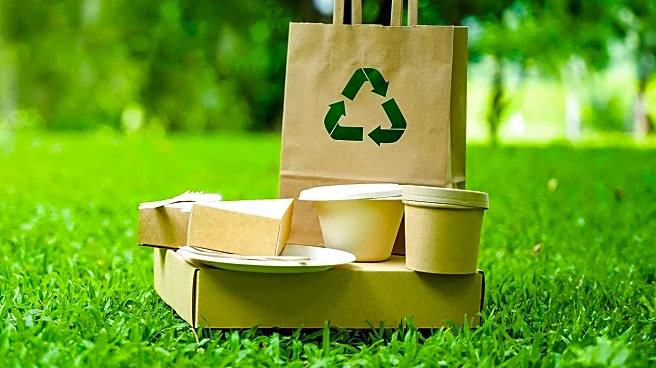What's Happening?
The push for biodegradable products is gaining momentum as a solution to reduce microplastics in the environment. Engineers at the Massachusetts Institute of Technology have developed biodegradable polymers
to replace small plastic particles in personal care products. These materials break down into harmless components like sugars and amino acids, offering an alternative to traditional plastics that contribute to microplastic pollution. The focus is on short-life items such as kitchen wipes, liners, and everyday packaging, which are major contributors to plastic waste. Researchers are also exploring home-compostable options, making sustainable product choices more accessible to consumers.
Why It's Important?
The shift towards biodegradable products addresses the growing concern over microplastic pollution, which poses environmental and health risks. By designing products to break down naturally, the initiative reduces the accumulation of microplastics in water systems and ecosystems. This approach supports sustainable consumption and waste management practices, encouraging consumers to make informed choices about product disposal. The development of biodegradable materials aligns with broader environmental goals, promoting a circular economy and reducing reliance on non-renewable resources.
What's Next?
The adoption of biodegradable products is expected to expand, with continued research and innovation in material science. Consumers are encouraged to choose biodegradable options for short-life items and match them to appropriate disposal routes, such as industrial or home composting. The market for sustainable products is likely to grow, driven by consumer demand and regulatory pressures to reduce plastic waste. Collaboration between researchers, manufacturers, and policymakers will be crucial in advancing biodegradable technologies and ensuring their effective implementation.
Beyond the Headlines
The move towards biodegradable products reflects a broader cultural shift towards sustainability and environmental responsibility. It highlights the importance of consumer awareness and education in driving change. The development of home-compostable materials challenges traditional waste management systems and encourages innovation in product design and disposal methods.









